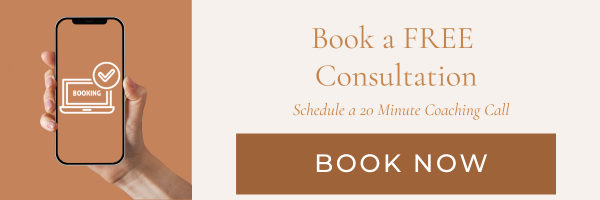If you’re feeling stuck in your career or looking to take it to the next level, career coaching can be a game-changer. A career coach can help you identify your strengths, set goals, and develop a plan to achieve them. However, to get the most out of career coaching, it’s important to approach it with the right mindset and preparation.
First, it’s important to understand that career coaching is a collaborative process. As a client, you are an active participant in the coaching process, and it’s up to you to take ownership of your goals and progress. Be open to feedback and willing to try new approaches, even if they feel uncomfortable at first. Remember, the coach is there to help you grow and succeed.
Second, before you start working with a career coach, take some time to reflect on your goals and what you hope to achieve through coaching. This will help you and your coach to establish a clear direction and set measurable objectives. Additionally, be prepared to invest time and effort into the coaching process. While a coach can provide guidance and support, ultimately, it’s up to you to take action and make progress towards your goals.

Understanding Career Coaching
Defining Career Coaching
Career coaching is a process of working with a professional coach to help you achieve your career goals. It is a collaborative and supportive relationship that focuses on your professional growth and development. As a career coach, I work with my clients to identify their strengths, weaknesses, and career aspirations. We then work together to create a plan to help them achieve their goals.
Benefits of Career Coaching
Career coaching can provide many benefits to individuals who are looking to advance their careers. Some of the benefits of career coaching include:
- Support: A career coach can provide you with the support and guidance you need to achieve your career goals.
- Goals: A career coach can help you identify your career goals and create a plan to achieve them.
- Success: A career coach can help you develop the skills and knowledge you need to be successful in your career.
- Growth: A career coach can help you identify areas for growth and development in your career.
- Fulfillment: A career coach can help you find fulfillment and satisfaction in your career.
The Role of a Career Coach
The role of a career coach is to provide guidance and support to individuals who are looking to advance their careers. As a career coach, I work with my clients to help them identify their career goals and create a plan to achieve them. I also help my clients develop the skills and knowledge they need to be successful in their careers.
In addition to providing guidance and support, a career coach can also help individuals overcome obstacles and challenges in their careers. Whether it’s a lack of confidence, a difficult boss, or a career transition, a career coach can help individuals navigate these challenges and achieve their goals.
Overall, career coaching is a valuable resource for individuals who are looking to advance their careers. It provides support, guidance, and a plan for success. If you’re looking to take your career to the next level, consider working with a career coach to help you achieve your goals.
How to Get the Most Out of Career Coaching
Preparing for Career Coaching
When it comes to getting the most out of career coaching, preparation is key. Here are some essential steps to take before your first coaching session.
Setting Clear Goals
The first step in preparing for career coaching is to set clear goals. Think about what you want to achieve through coaching and what specific outcomes you hope to see. This could include anything from improving your leadership skills to finding a new job. By setting clear goals, you’ll be able to focus your coaching sessions and ensure that you’re making progress towards your desired outcomes.
Assessing Your Current Situation
Before you begin working with a career coach, it’s important to take stock of your current situation. This includes assessing your strengths and weaknesses, identifying areas where you need improvement, and understanding your values and priorities. By having a clear understanding of where you stand, you’ll be better equipped to work with your coach to develop a plan for achieving your goals.
Establishing Trust with Your Coach
Finally, it’s important to establish trust with your coach. This means being open and honest about your goals, expectations, and concerns. It also means being willing to receive feedback and guidance from your coach, even if it may be difficult to hear. By building a strong relationship with your coach based on trust and mutual respect, you’ll be able to get the most out of your coaching sessions and achieve your desired outcomes.
Engaging in the Process
As a career coach, I know that engaging in the process is crucial for getting the most out of career coaching. Here are some ways to actively participate, embrace change, and receive and implement feedback.
Active Participation
Active participation means being fully present during coaching sessions and taking an active role in the process. This includes setting clear goals, asking questions, and taking notes. It also means being accountable for your own progress and taking action on the insights gained during coaching sessions. By actively participating, you can maximize the impact of your coaching experience.
Embracing Change
Change is a natural part of the coaching process, and embracing it can lead to transformational results. This means being open to new ideas and approaches, and being willing to step outside of your comfort zone. It also means being willing to let go of old habits and behaviors that may be holding you back. By embracing change, you can make a lasting impact on your career and your life.
Receiving and Implementing Feedback
Receiving and implementing feedback is an important part of the coaching process. This means being open to constructive criticism and feedback, and using it to make positive changes in your behavior and approach. It also means being accountable for your own progress and taking action on the insights gained during coaching sessions. By receiving and implementing feedback, you can make significant progress towards your career goals.
In summary, actively participating, embracing change, and receiving and implementing feedback are key to getting the most out of career coaching. By doing so, you can make a lasting impact on your career and your life.
Building a Supportive Environment
As a career coach, I believe that building a supportive environment is crucial for empowering clients to achieve their goals. Here are some ways to cultivate a supportive environment that can help clients get the most out of their coaching experience.
Seeking External Support
One way to build a supportive environment is to encourage clients to seek external support. This can include seeking advice from mentors, joining professional associations, or attending networking events. By connecting with others in their field, clients can gain valuable insights and support that can help them achieve their goals.
Cultivating a Growth Mindset
Another way to foster a supportive environment is to cultivate a growth mindset. This means encouraging clients to embrace challenges, learn from failure, and view setbacks as opportunities for growth. By adopting a growth mindset, clients can develop the resilience and adaptability needed to succeed in their careers.
Maintaining Work-Life Harmony
Finally, it’s important to help clients maintain work-life harmony. This means helping them balance their professional and personal lives, set boundaries, and prioritize self-care. By promoting work-life harmony, clients can avoid burnout and maintain their motivation and focus.
In summary, building a supportive environment is essential for empowering clients to achieve their goals. By seeking external support, cultivating a growth mindset, and maintaining work-life harmony, clients can create a positive and empowering environment that can help them achieve success in their careers.
Evaluating Coaching Outcomes
As someone who has benefited from career coaching, I understand the importance of evaluating coaching outcomes. It is essential to measure the success and impact of coaching to determine if it is worth the investment of time and money.
Measuring Success and Impact
One of the most critical aspects of evaluating coaching outcomes is measuring success and impact. This involves setting goals at the beginning of the coaching process and tracking progress toward those goals. It is essential to establish clear and specific goals that are measurable and achievable.
To measure the success of coaching, I recommend using a combination of objective and subjective measures. Objective measures may include metrics such as increased productivity, higher job satisfaction, or a promotion. Subjective measures may include feedback from colleagues or a self-assessment of progress.
It is also important to evaluate the impact of coaching on the broader organization. For example, if coaching results in increased productivity or better teamwork, it could have a positive impact on the company’s bottom line.
Adjusting Goals and Strategies
Another critical aspect of evaluating coaching outcomes is adjusting goals and strategies as needed. If progress toward goals is slower than expected, it may be necessary to adjust the goals or strategies to ensure success.
Regular evaluation and feedback are essential to making these adjustments. I recommend setting up regular check-ins with the coach to discuss progress and make any necessary adjustments. It is also important to solicit feedback from colleagues and other stakeholders to ensure that coaching is having a positive impact on the organization.
In summary, evaluating coaching outcomes is essential to ensure that coaching is having a positive impact on both the individual and the organization. By measuring success and impact and making adjustments as needed, individuals and organizations can ensure that coaching is a worthwhile investment.
Intuitive Clarity Coaching for Career Coaching
At Intuitive Clarity Coaching, I believe that everyone has the inner wisdom and intuition to identify the career that truly resonates with their soul. Our coaching program is centered around this idea, and we help our clients tap into their inner wisdom and intuition to find clarity and direction in their careers.
My approach is unique in that we leverage traditional career guidance, psychology, spirituality, and other tools such as meditation, visualization, birth chart analysis, and life path number analysis. This holistic approach allows us to help our clients gain a better understanding of their strengths, passions, and purpose in life.
One of the key benefits of working with Intuitive Clarity Coaching is that we have a coaching program that’s self-guided. This means that you can take control of your career and find the fulfillment you’ve been longing for. Our DIY Career Coaching Program is designed to help you identify your career goals, develop a plan of action, and take the necessary steps to achieve your dreams.
In addition to our DIY Career Coaching Program, we also offer one-on-one coaching sessions for those who prefer a more personalized approach. Our coaching sessions are designed to help you gain clarity on your career goals, overcome any obstacles that may be holding you back, and take action towards achieving your dreams.
Overall, Intuitive Clarity Coaching is a great choice for anyone who’s looking for a personalized and effective approach to career coaching. With our unique approach and self-guided program, we can help you tap into your inner wisdom and intuition to find clarity and direction in your career.




